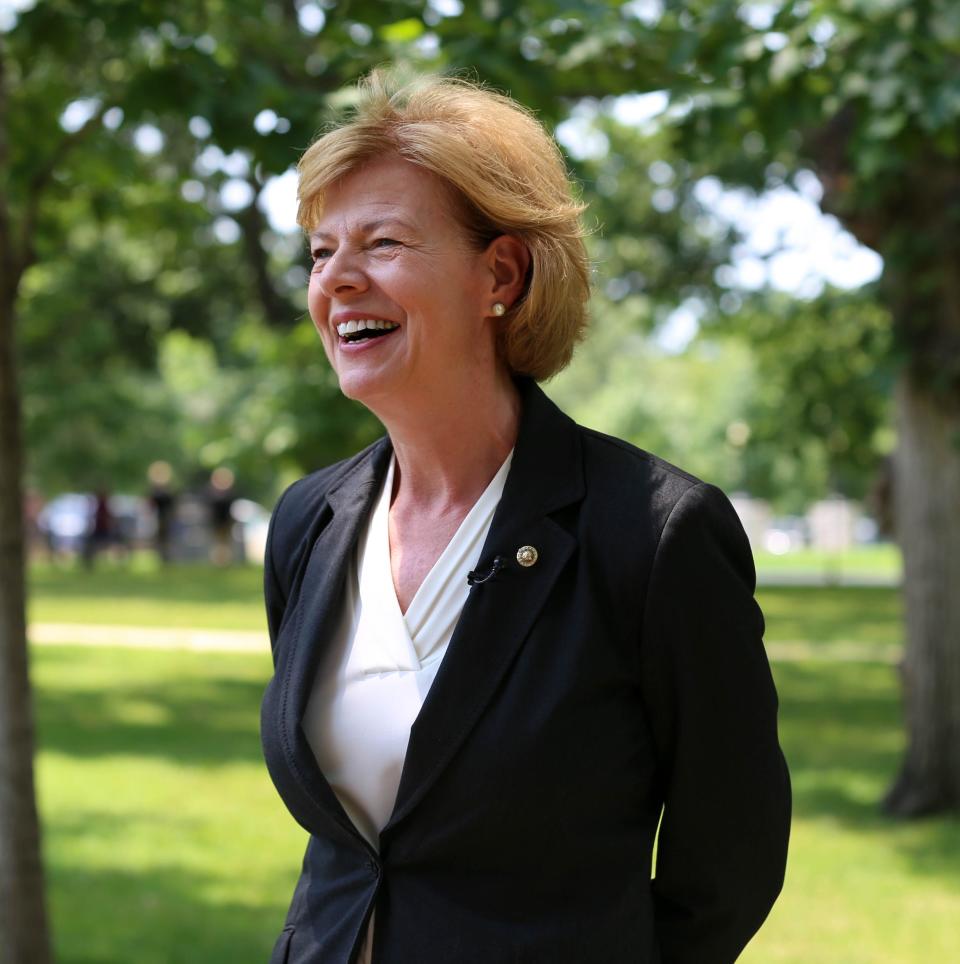In the wake of Supreme Court overturning Roe v. Wade, Wisconsin is living in 1849
In Wisconsin, we are living with the real-life consequences of Roe v. Wade being overturned. And for way too many people like Erica and her partner, Scott, it has been a nightmare.
After years of trying to get pregnant, Erica was 13 weeks into her pregnancy when she and Scott learned heartbreaking news. The fetus had a condition known as anencephaly. Their baby had never developed a skull. They were devastated. Instead of being able to get immediate care and mourn their loss, Erica and Scott had to figure out the logistics of how to get an abortion out of state. They had a tough time even getting someone on the phone and struggled to find an appointment sooner than two to three weeks away.
Erica was forced to stay pregnant for one week with a fetus that she knew would not survive. “Once we knew that the pregnancy was doomed,” she said, “Every day I was still pregnant was just an ongoing reminder of our loss.”
Wisconsin’s legislature banned abortion in 1849
And Erica is not alone. One Wisconsin woman bled for more than 10 days from an incomplete miscarriage after emergency room staff would not treat her. Another, whose water broke at 17 weeks, was sent home without the abortion care she needed, only to return two days later with a life-threatening infection.
Opinions in your inbox: Get exclusive access to our columnists and the best of our columns
Wisconsinites are living in 1849. In 1849, Wisconsin’s 1-year-old legislature banned abortion, making it a felony to provide abortion care unless the life of the mother is in danger.
No women were present to debate that statute, let alone vote for or against it. In fact, it would be 70 years before women could even vote, let alone hold office in Wisconsin.

Yet more than 170 years later, an activist Supreme Court ripped away the constitutional rights of millions of Americans, and last year, this abortion ban that predates the Civil War took effect, denying hundreds of thousands of Wisconsinites the right and freedom to control their bodies.
Doctors are afraid to administer the lifesaving care they are trained to provide for fear they could be prosecuted.
Women are being forced to self-administer abortions without medical supervision or if able, seek care out of state, sometimes traveling hundreds of miles.
‘Let’s start talking’: Why we’re sharing the story of one family’s conversations about a mom’s long-ago abortion
Is this really happening?: Near-total abortion ban sets Arizona back more than 150 years
And if they can’t afford the cost of travel, lodging, child care or time off work, many Wisconsinites, especially women of color and those in rural areas, are being forced to carry pregnancies they didn’t choose.
Others are silently struggling with no good options, wondering how in 2023 they have fewer rights than their mothers and grandmothers.
How many states have near-total bans on abortion?
Across the country, about 15 states have already implemented near-total bans, leaving 1 in 3 Americans ages 15-44 without access to safe, legal abortion care and 17.8 million women of reproductive age without the freedom to access reproductive health care in their home state.
Republicans should have been ready: Dumping Roe may backfire on abortion opponents
Credibility of justices: Overturning Roe v. Wade undermines the legitimacy of the Supreme Court
Sadly, anti-choice extremists in states across the country are continuing their crusade to take away bodily autonomy by pushing bills that include medically unnecessary restrictions that limit access to abortion care.
This all flies in the face of the overwhelming majority of Americans and Wisconsinites who support women having control over their bodies, future and family.

That’s why I, alongside Democratic leaders from the House and Senate, am proud to be leading the Senate in the introduction of the Women’s Health Protection Act.
The Women’s Health Protection Act would protect the right to perform and access abortion free from arbitrary waiting periods, biased and scientifically inaccurate counseling requirements, mandatory ultrasounds and absolute bans on abortion earlier in pregnancy.
The legislation would return the life-altering decision to have a baby to women and their doctors, without interference from politicians. Consistent with the law of the land under Roe v. Wade and what the American people support, our commonsense legislation says states cannot limit access to abortion care if such a limit would jeopardize the life or health of the patient, even later in pregnancy.
With abortion deserts sadly commonplace across our country, our legislation protects the people’s ability to travel out of state for an abortion.
Opinion alerts: Get columns from your favorite columnists + expert analysis on top issues, delivered straight to your device through the USA TODAY app. Don't have the app? Download it for free from your app store.
For Americans whose rights and freedoms have been stripped away, this bill is not just a political exercise; it is necessary to respond to a very real crisis. Having the freedom to control your health care, your body and your future – free from government interference – is a fundamental right.
But in several states, it is no longer a reality. It’s time to pass the Women’s Health Protection Act.
Tammy Baldwin is a U.S. senator from Wisconsin, first elected in 2012. Follow her on social media: @SenatorBaldwin
You can read diverse opinions from our Board of Contributors and other writers on the Opinion front page, on Twitter @usatodayopinion and in our daily Opinion newsletter. To respond to a column, submit a comment to letters@usatoday.com.
This article originally appeared on USA TODAY: Can you get an abortion in Wisconsin? No, and that must change.

